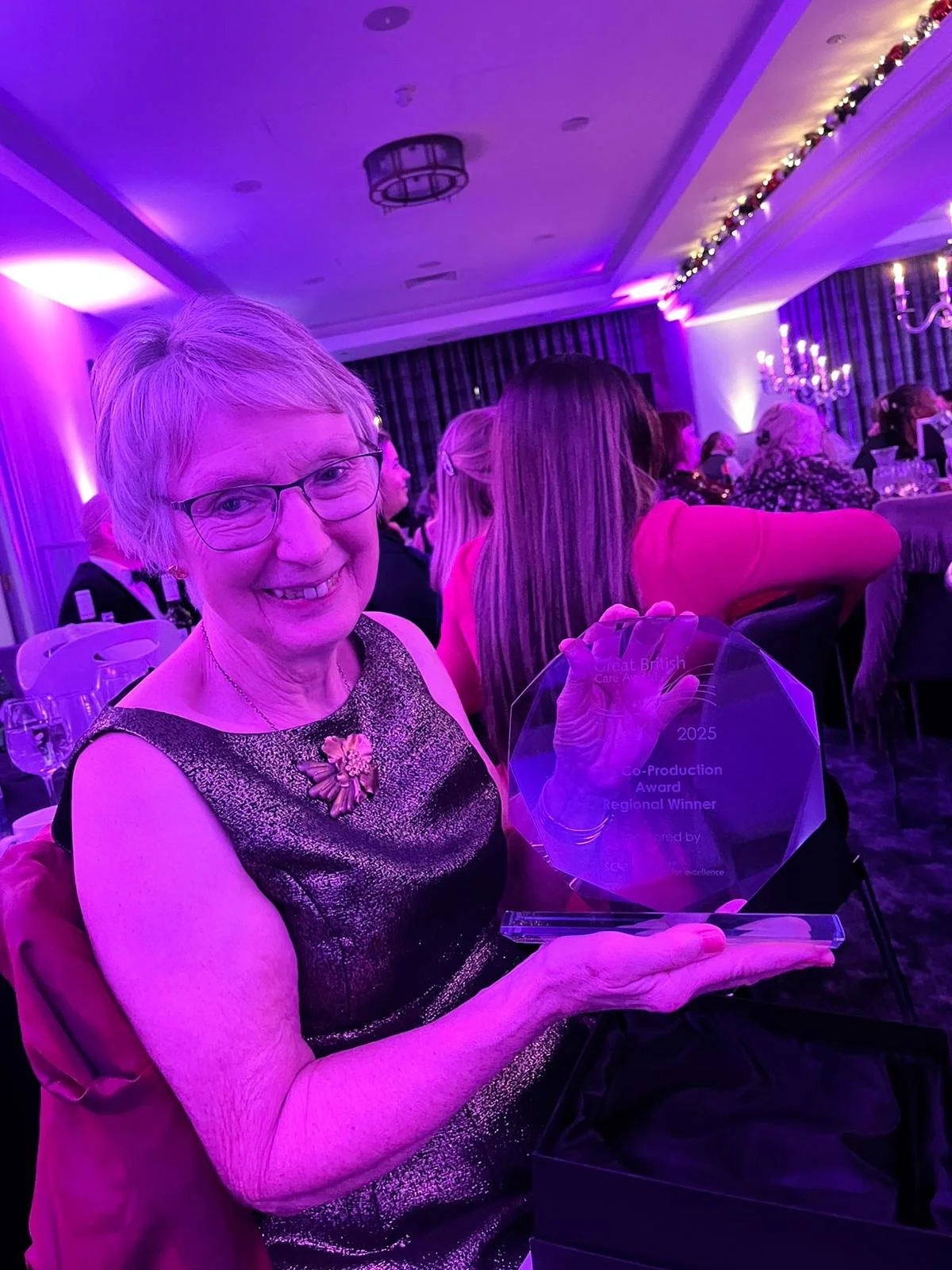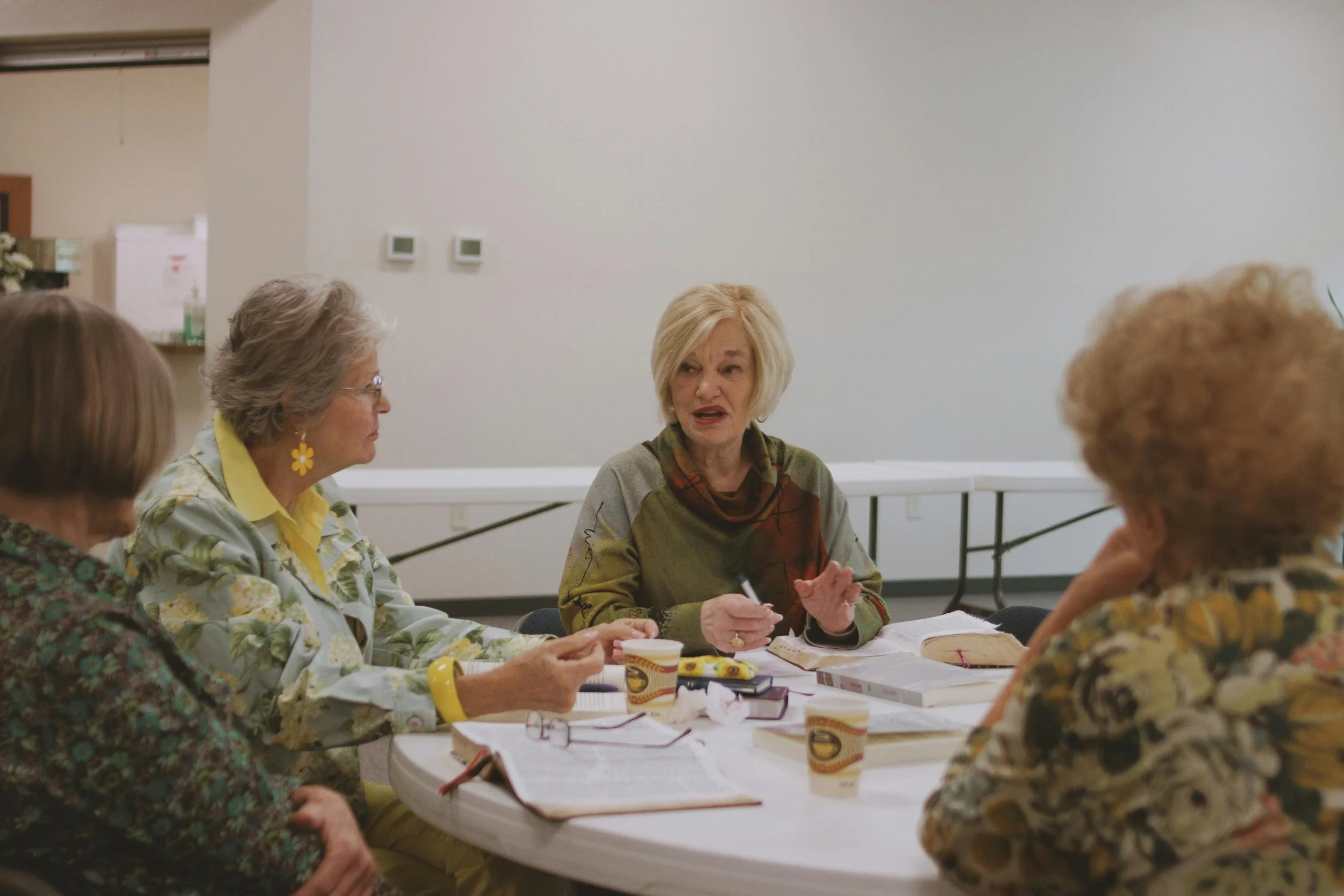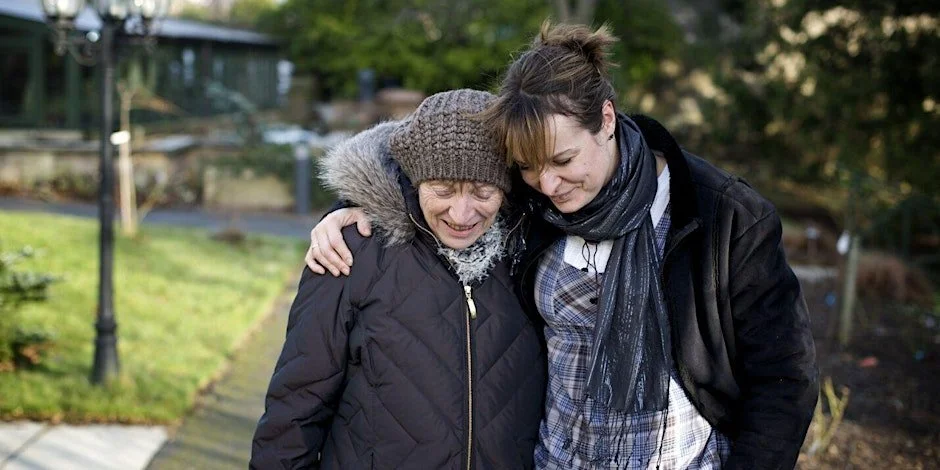“I want people to see me, not my dementia”
A Stirling woman is making it her mission to bust the myths surrounding dementia – and her journey has just earned her a national award. Joan Lyon, 75, was diagnosed with Alzheimer’s three years ago after her sister picked up Joan’s lapses in memory. Since then, she has not only maintained her independence – including living on her own – but she has used her diagnosis for the good.


That includes lecturing to hundreds of nursing and paramedic students at the University of Stirling and volunteering her help in studies and workshops at the University’s Dementia Services Development Centre (DSDC).
Joan’s work alongside the University of Stirling this week earned a Great British Care Award, with judges describing Joan as “a courageous advocate for people living with dementia [who is] leaving a lasting impact on the next generation of compassionate clinicians”.
Joan speaks positively about her dementia. “For me it’s not been a sudden push into old age and forgetfulness, it’s more a turning of a corner. I see this as a new road. I didn’t expect this so how can I best navigate it?”
A retired Episcopalian priest, mother of four and grandmother of five, Glasgow-born Joan has lived in Papua New Guinea, Luxembourg and several regions of the UK, from Suffolk to Aberdeen. She says she has always enjoyed good health, “but I never had a good memory.”
Following her diagnosis, and on a walk with her dog one day through the University of Stirling campus, Joan spotted the sign for DSDC and decided to investigate. “I’m sufficiently compos mentis to make use of the help that’s available to people with a dementia, and there is a lot out there, including the fabulous DSDC.”
Soon Joan was volunteering – offering her input on everything from research into better design for people with a dementia, to testing of new dementia-friendly products from manufacturers, one of DSDC’s services.
For Joan it’s been a happy return to the place she began her working life; her first job after gaining a degree at the University of Strathclyde was a year working in the French department at Stirling.
University of Stirling academics behind the pioneering module Being Dementia Smart – which Joan contributes to – say she is integral to its success. The module, devised by staff at DSDC, is the first in the UK to include dementia design for undergraduate nurses and paramedics.
Sarudzai Mutebuka, Lecturer in Nursing and Being Dementia Smart Lead, said: “Involving Joan in the teaching has been a great step in the right direction for our students as it has helped to demystify dementia and all the negative stereotypes associated with it.
“In Joan, our students can see the person behind the illness and diagnosis and hopefully this will change their future practice. Thanks to Joan, we have seen several students saying they now want to work in dementia care as a result of these experiences.”
Dave Wilson-Wynne, Senior Dementia Consultant at DSDC, who devised and helps deliver Being Dementia Smart along with Professor Lesley Palmer, said: “You can feel the impact in the room when Joan delivers her lectures to Stirling students. At DSDC we advocate for a person-led approach to our dementia training, teaching and development and Joan’s time with students demonstrates why we must think outside the box. We are delighted that she continues to shape the thoughts and feelings of our future nurses and paramedics.”
Joan and the University of Stirling were named winner of the Co-Production Award at the Great British Care Awards Regional Final in Glasgow on Monday, 10 November. DSDC was a finalist in the Workforce Development Award category for the Best Practice Programme.
She said: “I’m thrilled to win this award, and a huge thank you to DSDC for keeping my brain functioning. Never in a million years would I have imagined that I would be delivering informative lectures on my experience of having Alzheimer’s disease at the University where I worked back in 1970!
“I want people to see me, not my dementia. I also want them to understand there is no ‘one size fits all’ and that it is important not to feel embarrassed, scared or despairing when there is help at hand through the University of Stirling and Alzheimer’s Scotland.”




